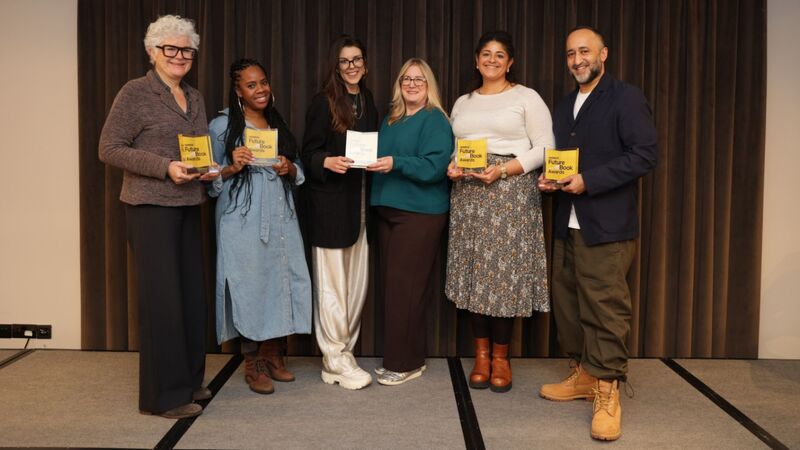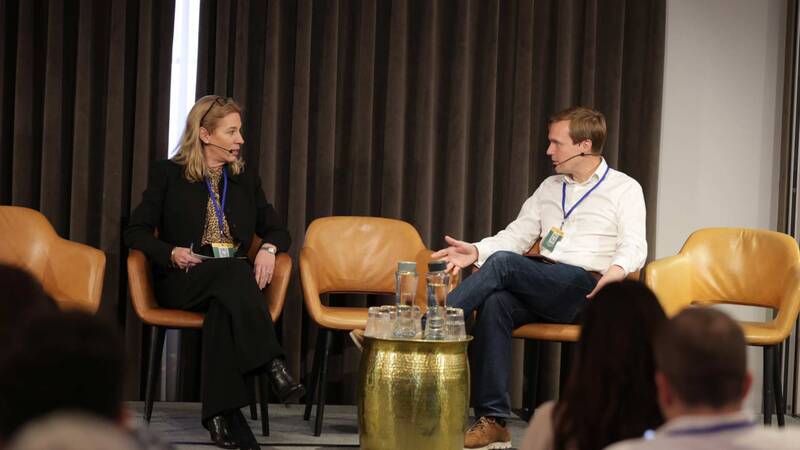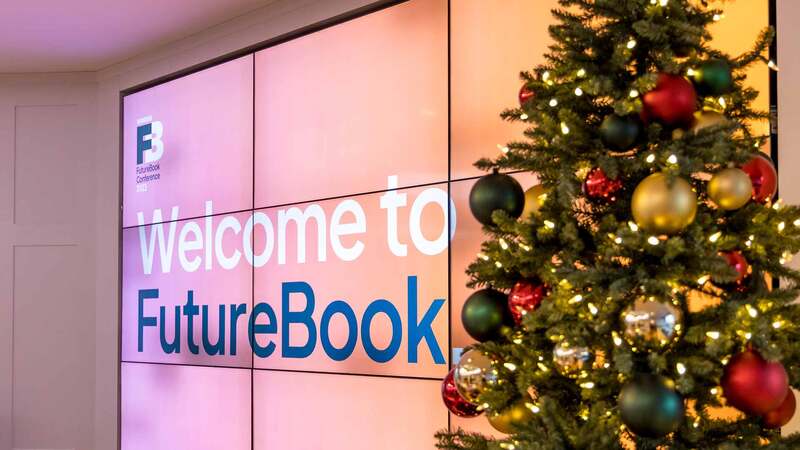You are viewing your 1 free article this month. Login to read more articles.
Gail Rebuck calls for more female publishing heads
Baroness Gail Rebuck has called for more female c.e.o.s in publishing. The chair of Penguin Random House UK urged change at the top of publishing groups at The Bookseller's annual FutureBook Live conference on Monday (25th November), taking issue with Orion m.d. Katie Espiner, who had referenced the same topic in a keynote earlier in the day.
”If it’s only ever about the optics it has to fail, it has to be about genuine passion in the DNA of the company," Rebuck said. "What I’d like to see at some point is a woman running a large group again in the UK – there were a number of us. It’s pretty interesting that we were all replaced by men. And if you look at each decision, they were the right decision, they are fantastic and are doing great things. But the fact of the matter is that unlike the US we have no women running large groups, though we have women running smaller start-ups but no large groups. I think that is a problem. This morning I read that Katie Espiner said [in her Futurebook keynote] ‘Why do we go on about this, it doesn’t really matter.’ Katie – I disagree with you. I think we should celebrate our divisional heads or heads of departments… but until we get more women running larger groups we will not see this sort of wholesale change.
“When I was c.e.o. for 22 years, there were lots of men who would say quite openly, ‘Gail, I think you’re great but I can do a better job, when are you off?’… I never had a woman have that discussion with me. And I think back, perhaps I should have initiated that sort of discussion.”
Rebuck called on women to articulate their ambitions and goals at work. “My advice to women today is ask - ask for what you want because in boardrooms all over the place, succession planning is going on and lists are there… Get in there and ask for what you want. I wouldn’t worry about being too over-assertive actually. I think people are desperate for individuals with passion and opinions.”
Perspectives towards women in the trade had changed over the last few decades, she said. “It’s often said that men are promoted on their potential and women on their track history and I think that is as true today as it is again,” she told the Futurebook attendees at 155 Bishopsgate in London. “For my generation we had very few role models. We were propelled by our mothers’ shattered dreams… they never fulfilled themselves and got the roles they were perhaps capable of because the rules were they perhaps had their roles mapped out for them. So I think there was only one way for my generation and that was forward… and we didn’t think about all the angst stuff that is thought about today, we just got on with it.”
Meanwhile women’s publishing collective The FLIP revealed they would expand the Flip’s online resources in 2020. Transworld editor Ella Horne, who helps run the group for women in publishing, said: “Where we have found our niche is in a culture of sharing. The people who we’ve interviewed have been incredibly open and honest in sharing their advice. And we have big plans for next year, we’re launching a website in January and we’re trying to make the most of our online communities such as Twitter, Linkedin and Instagram, and extend that nature of sharing across social networks so it’s just one interviewee sharing with us and therefore our subscribers, it’s an entire community able to share their experiences.
The rigid structure and hierarchy of publishing was discussed, with the panellists suggesting it is difficult to move between departments as well as a bottle-neck at the top of organisations. Rebuck said: “It seems to me that sharing leads to empowerment and I do wonder why the need for the Flip is as great which it clearly is now as Women in Publishing was in 1979. Do you think part of the problem is that… now we have these large conglometates that women might feel slightly siloed in their roles… that you might be in the sales department but you want to be in the editorial department. Do you think that contributes to the lack of self-empowerment, being able to ask for what you want?
Horne said: “We don’t have an industry where there is a high turnover at the top so there is huge frustration from people who are mid-level and junior in their careers and are having to sit in that assistant role for a really long time, waiting for someone else to leave before you can move up so in that way I think we are siloed, we don’t encourage side-stepping and I think people leave traditional publishing when they feel they’ve reached a ceiling.”
Crystal Mahey-Morgan of OWN IT!, described how after working at PFD and Penguin Random House and feeling increasingly frustrated, she became inspired to set up her own company. “I think it’s really interesting that [there has been discussion about] assertiveness training because I feel for me, it was almost I was too assertive. It was almost like I needed training to manage my own assertiveness to make others feel comfortable. Sometimes that was men and sometimes that was something that was different to me… Female leadership and empowerment is very important. When you happen to be working class and minority ethnic… you have these three things that you’re really competing against and at any one time you don’t know which is the one which is holding you back, they mix together. And I feel that all of these things were a frustration. In terms of the siloness, I really did try to move around and do different things. When you have siloed ways, it’s not just that people don’t get promoted and you lose out on important people in your workforce, you lose out on audiences because I feel like storytelling – and this goes back to technology – is going into a multimedia, fluid place.”
Rebuck said: “I just wonder if the structures are there to enable, to fast-track. Crystal – you’ve often said that you’ve had so many barriers, that you overcame them to set up your own company. Why can’t the [publishing] groups recognise that and from a tail-wind perspective, propel women like you through the ranks so that you end up in leadership positions. That’s what I’d like to see from publishers nowadays.”
Horne described how a publishing employee they had interviewed – who was female, BAME and working class – echoed Mahey-Morgan’s sentiments for self-empowerment. Horne said: “Her advice for people early on in their careers was ‘if you’re on an apprenticeship and they are not valuing you, if they are wasting the resource that you are then leave, because you won’t get that time back.’ I think my jaw hit the desk because I wish I’d had that knowledge of my value at her age and I think that is testament is she was going for it and she probably was what some people call ‘overly assertive’ and I think it’s absolutely brilliant and I think it’s going to get her a really long way.”
Rebuck discussed how the younger generation is a driving force for change. “Millennials were more personality and issue-based… but Gen Z is so feisty, women in publishing that I’ve met in particular, are extraordinary. They are explosions of ‘will not be categorised, will not in any way accept the rules and regulations and will walk’. I think it’s a very interesting moment for people in senior roles in publishing and for Gen Z women and men because there is a great opportunity to get this wrong and Gen Z is going to be about 20% of the workforce in a few years’ time so we have to make change.”



















